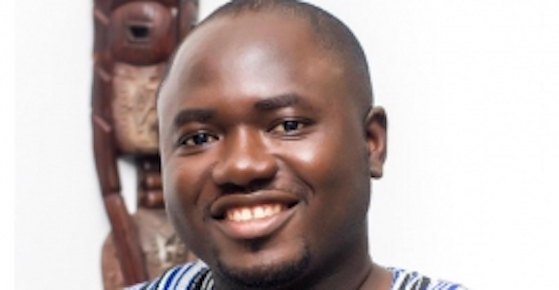Author: Daniel Abusuampeh, MSW, MPA (School of Social Work Doctoral student and CRSP's Research and Development Assistant)

Racism Across the World: Tribalism in Africa
As the world grapples with the pervasive plague of systemic racism, its shadow often falls across continents in various forms. In Africa, the counterpart of racial discrimination manifests as tribalism, a complex web of prejudices and biases woven into the fabric of numerous societies. This tribalism is not just an echo of traditional inter-ethnic rivalries but a modern reflection of how systemic discrimination can adapt and thrive, even within racially homogenous societies.
It is important to highlight the difference between ethnicity, tribe, and tribalism. Ethnicity refers to a group of people bonded by common cultural, ancestral, or linguistic traits, like the Akan groups in Ghana and the Yoruba in Nigeria. Tribe is a word deliberately coined to refer to Africans as a group of people who share a common language and are uncivilized. Out of the coined word tribe came tribalism, which implies a stronger allegiance to one's own tribe, often prioritizing its interests above those of others, which can lead to favoritism and potential conflict. In brief, ethnicity is about shared cultural traits, while tribalism highlights a prioritization and sometimes favoritism towards one’s own ethnic group, often in social and political contexts.
Tribalism, in essence, shares the same DNA with racism: both are ideologies that use perceived differences to justify unequal treatment and to maintain power structures. While racism often divides along skin color, tribalism segregates along ethnic lines, dialects, or clan affiliations. It can influence who gets a job, who receives government services, and who holds power - weirdly mirroring the racial divides seen elsewhere.
The issue of tribalism in Africa is not a monolithic problem; it varies in intensity and manifestation across the continent. From the ethnic tensions that have occasionally flared into violence in Nigeria to the more subtle but equally corrosive tribal biases in Ghana shaping the political and social outcomes, the consequences are profound and pervasive. These tribal divisions undercut the efforts toward unity and development that have been the rallying cry of many African states since independence.
But why should the world pay attention to Africa's tribalism? For one, it provides a broader lens through which to understand racism. It shows us that the problem of “othering” is not specific to any race, culture, or region. Tribalism, like racism, is born out of a constructed hierarchy of human values. It is a stark reminder that the fight against systemic discrimination is a global struggle, one that requires a deep understanding of local contexts and global solidarity.
Furthermore, tribalism impedes the global community’s collective efforts to tackle universal challenges. From climate change to pandemics, the need for cohesive action has never been more pressing. However, when a society is fragmented along tribal lines, mobilizing collective action becomes an uphill battle.
Addressing tribalism in Africa requires a comprehensive approach, with education being crucial. It can uncover the historical roots of tribal conflicts and foster narratives of unity. For example, the Structured Cognitive Behavioral Training (SCBT) framework, used at the University of Pittsburgh’s School of Social Work for racial equity consciousness development, offers a model for combating tribalism. SCBT, drawing from cognitive behavioral therapy, addresses unconscious biases and behaviors that perpetuate discrimination, promoting visions and commitments to equity. This framework involves addressing systemic factors contributing to racial disparities, like institutional policies, and developing systemic interventions for equity. It requires a 'systems thinking' approach, considering relationships among various societal elements.
Such efforts are vital in empowering individuals to challenge the status quo, recognize shared humanity beyond tribal affiliations, and build societies valuing diversity as a collective strength, not just a token of tolerance.
As we confront racism and tribalism, we must remember that these are not just issues for those who suffer their immediate effects. They are a clarion call to all who believe in a just world. A world where diversity is not merely accepted but celebrated, where our common humanity provides the fertile ground for our varied cultures to flourish together.
The fight against tribalism in Africa is a chapter in the larger narrative of humanity's quest for equity and justice. It reminds us that our work is not done until the arbitrary lines of division, whether drawn by race or tribe, are erased and replaced with the unshakeable bonds of our shared human experience.